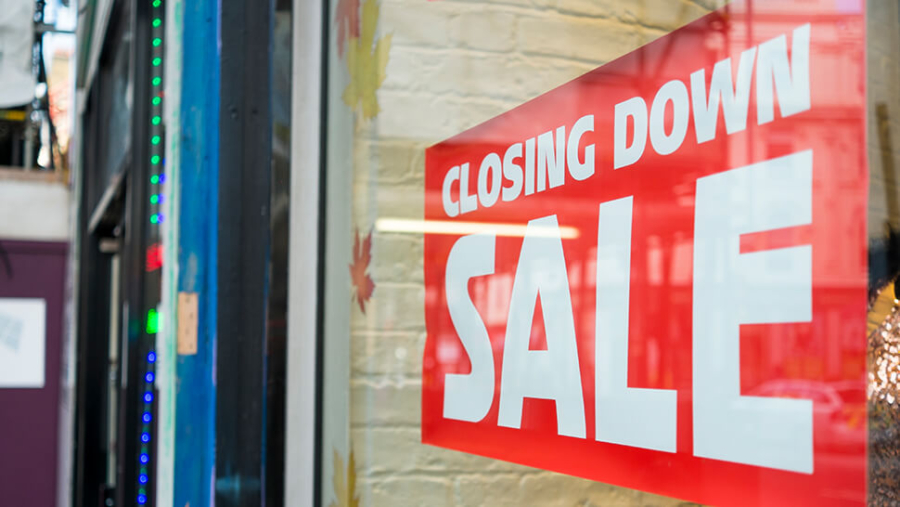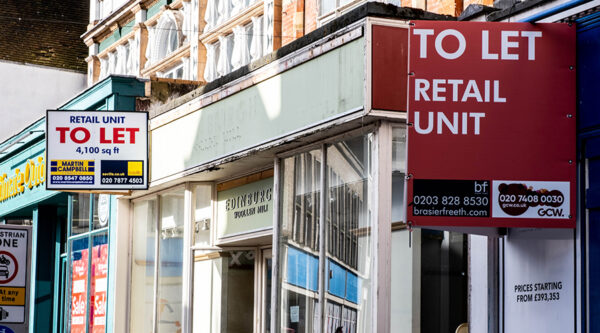

On 23 April the Government announced that it will introduce new temporary measures to safeguard the UK High Street against aggressive debt recovery actions during the Covid-19 pandemic. This follows commercial hospitality tenants asking for rent holidays and UK Hospitality setting out a plan it felt the government should follow in order to support the industry.
The new measures supplement section 82 of the Coronavirus Act 2020 which already prevents landlords proceeding with forfeiture of business tenancies until 30 June 2020.
What are the measures?
The Government will temporarily ban the use of statutory demands (made between 1 March 2020 and 30 June 2020) and winding-up petitions (presented from 27 April 2020, through to 30 June 2020) where a company cannot pay their rent as a result of Covid-19.
The Government has also pledged to introduce secondary legislation which prevents a landlord using Commercial Arrears Recovery (CRAR), unless the landlord is owed 90 days of unpaid rent.
It is anticipated that the measures will be included in the Corporate Insolvency and Governance Bill, which the Business Secretary Alok Sharma set out in April. We understand this will come into force imminently.
What does this mean?
The Government’s measures are intended to preserve shops and millions of jobs by preventing permanent closure as a result of the inability to pay rent, as this would ordinarily result in the landlord issuing a statutory demand and subsequently presenting a winding-up petition.
This also means that commercial landlords will no longer have any enforcement options available to them in respect of a tenant not paying their rent.
Any rent due and any service charge will remain payable. It is important to remember that interest for late payment will continue to accrue.
Conclusion
It appears that the government’s new measures are particularly favourable to tenants. What is not clear is how the government envisages dealing with such matters once businesses are able to trade again. The temporary bans are short term and so this is likely to leave landlords and tenants questioning what the process is likely to be or what the future holds post Covid-19.
When will the Corporate Insolvency and Governance Bill come into effect?
The new Coronavirus Act received royal assent on 25th March. The Corporate Insolvency and Governance Bill is imminent but no announcement has been made on the date that this will come into effect.
Prior to the new legislation coming into effect, are landlords still able to submit applications for winding-up petitions or use statutory demands against tenants?
There is no law yet, so landlords can still issue a statutory demand or present a winding-up petition. There is no pre-requisite to issue a statutory demand prior to presenting a winding-up petition. However, it is likely that the restrictions will be in force by the time the winding-up petition was heard and would be dismissed.
The landlord should attempt to discuss the issues with their tenant in the first instance to try and reach an agreement of how to move forward in terms of rent payments before deciding to issue a statutory demand.
Do these new provisions highlight how the relationship between landlord and tenant is evolving and what the future holds for commercial tenants in the hospitality sector?
These new provisions are expected to remain in place until at least 30 June 2020, which can be extended in line with the suspension on commercial leases forfeiture provisions.
The measures seem very tenant focused and are potentially not sustainable longer term as they don’t give due consideration to the landlord’s position. It will be interesting to see what further announcements are made over the course of the next month.
What options are available to tenants who are unable to pay their rent and cannot be wound up under the new legislation?
The tenant is encouraged to pay what they can in terms of rent and to communicate with their landlord as early as possible when they are faced with difficulties in meeting rent payments; or a company can look at alternative insolvency processes such as administration/CVA.
Will the new legislation be beneficial to the tenant in the long term?
Even if the temporary ban is extended, this leaves rent and interest accruing which will need to be re-paid at some point in the future. We would expect a further period of transition to follow to enable tenants to pay as their cash flow and trading is unlikely to be at pre-Covid levels for some time.
What options are currently available to landlords to protect themselves and also to support their tenants?
- Landlords should enter negotiations with tenants as soon as possible, it may be that tenants can pay their rent monthly rather than quarterly
- Offering the tenant a rent free period in return for a longer lease or removal of break clauses within the lease – it is more beneficial for the landlord to have the premises occupied rather than losing the existing tenant and having to find a new tenant, particularly when it is unclear what the future will look like for high street businesses
- Landlords which are set up as small/medium companies can access government loan and funding schemes
- Discuss options with your lenders/investors – they may be able to offer a break from mortgage payments.
Top tips for landlords
- Speak to your tenant as soon as possible to determine how they are coping in light of Covid-19 and discuss ways of moving forward that work for you both
- Review the lease – you may be able to agree with the tenant to draw on some other security provided (rent deposit deed)
- Document any agreements with the tenant
- The Coronavirus Business Interruption Loan Scheme is now available to landlords who run their portfolio as small or medium size businesses LINK
- Where an agreement cannot be reached may have recourse via a guarantor
Top tips for tenants
- Speak to your landlord as soon as possible so that they are aware of the situation and can help with finding a solution that works for you both in terms of rent payments
- Review your business interruption insurance to ascertain whether recovery of rent is possible
- Pay rent where it is possible to do so.
For more information, visit our buying, renting and selling property Q&A.










